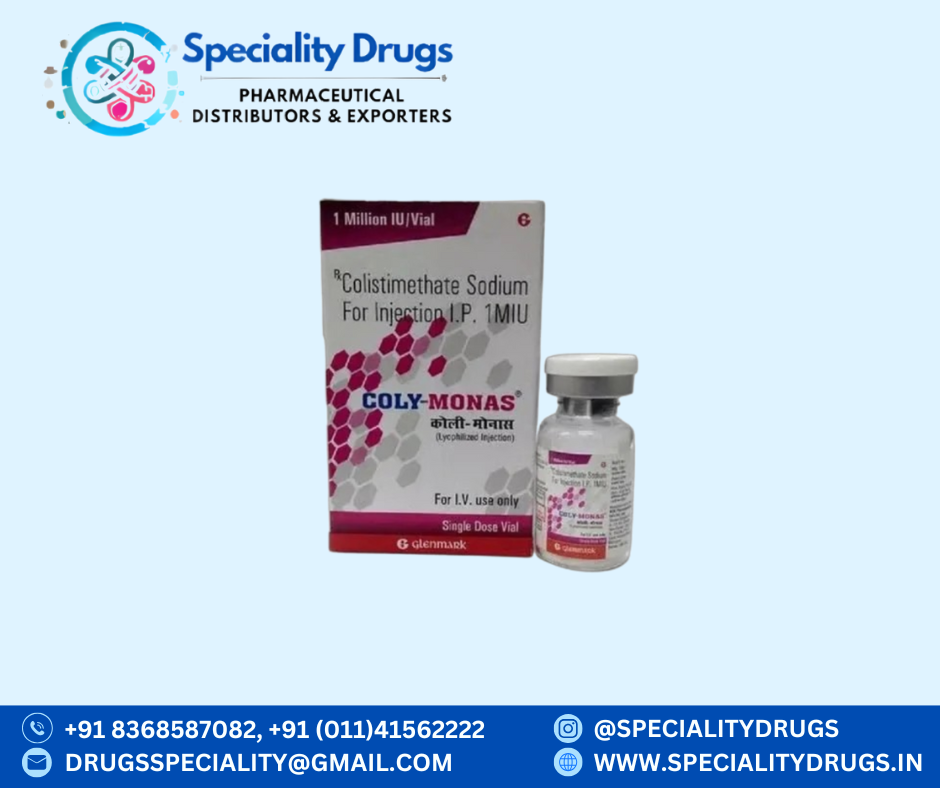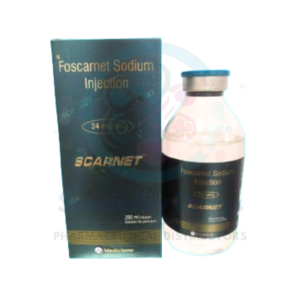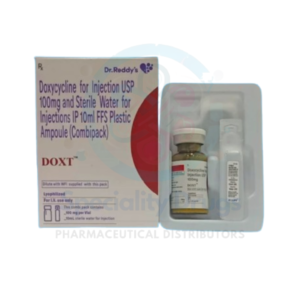What is COLY-MONAS IMIU INJ?
COLY-MONAS IMIU Injection is an antibiotic medication that contains Colistimethate Sodium. It belongs to the group of polymyxin antibiotics and is used for treating serious bacterial infections. This medicine is generally prescribed in hospital settings under medical supervision.
What is the use of COLY-MONAS IMIU INJ?
-
Used for the treatment of severe infections caused by multidrug-resistant Gram-negative bacteria such as Pseudomonas aeruginosa, Klebsiella pneumoniae, and Acinetobacter baumannii.
-
Commonly prescribed in cases of pneumonia, urinary tract infections, bloodstream infections, meningitis, and intra-abdominal infections caused by resistant bacteria.
-
Often used as a last-line therapy when other antibiotics fail.
Benefits of COLY-MONAS IMIU INJ
-
Effective against multidrug-resistant infections where limited treatment options are available.
-
Helps in controlling life-threatening infections in critically ill patients.
-
Can be given in both intravenous (IV) and intramuscular (IM) forms depending on the clinical requirement.
-
Provides broad-spectrum activity against Gram-negative bacteria.
Side Effects of COLY-MONAS IMIU INJ
Like all strong antibiotics, COLY-MONAS IMIU Injection may cause side effects. Some common and serious side effects include:
-
Common Side Effects:
-
Nausea, vomiting, or stomach upset
-
Dizziness or tingling sensations
-
Temporary skin rash or itching
-
-
Serious Side Effects (require immediate medical attention):
-
Kidney-related problems (reduced urine output, increased creatinine levels)
-
Neurotoxicity (confusion, seizures, muscle weakness, numbness)
-
Breathing difficulties or chest tightness (rare but serious)
-
Allergic reactions (swelling, severe rash, difficulty in breathing)
-
1. What is COLY-MONAS IMIU Injection?
COLY-MONAS IMIU contains Colistimethate Sodium, an antibiotic used to treat severe bacterial infections caused by multidrug-resistant Gram-negative bacteria.
2. What conditions does COLY-MONAS IMIU Injection treat?
It is mainly used for serious infections such as pneumonia, urinary tract infections, bloodstream infections, meningitis, and intra-abdominal infections caused by resistant bacteria.
3. How is COLY-MONAS IMIU Injection given?
It is usually administered by a doctor or nurse either through an intravenous (IV) infusion or intramuscular (IM) injection in a hospital setting.
4. Can I take COLY-MONAS IMIU Injection at home?
No. This medicine should only be given under strict medical supervision in hospitals or healthcare facilities due to possible side effects.
5. What are the common side effects of COLY-MONAS IMIU Injection?
Some common side effects include nausea, vomiting, dizziness, skin rash, and stomach upset.
6. What serious side effects should I watch out for?
Seek medical help immediately if you notice reduced urination, muscle weakness, confusion, seizures, difficulty breathing, or severe allergic reactions.
7. Is COLY-MONAS IMIU Injection safe for kidney patients?
This injection can affect the kidneys. Dose adjustments are required in patients with kidney disease, and close monitoring is necessary.
8. Can COLY-MONAS IMIU Injection be given to children?
Yes, it may be used in children under a doctor’s prescription, but the dosage is carefully calculated based on weight and age.
9. Can I take COLY-MONAS IMIU Injection if I am pregnant or breastfeeding?
It should be used in pregnancy or breastfeeding only if clearly needed and prescribed by a doctor, as it may pose risks to the baby.
10. Does COLY-MONAS IMIU Injection interact with other medicines?
Yes. It may interact with medicines that affect the kidneys (like aminoglycosides, vancomycin) or the nervous system (like muscle relaxants). Always inform your doctor about all the medicines you are taking.
11. How should COLY-MONAS IMIU Injection be stored?
It should be stored in a cool, dry place below 25°C, away from sunlight. Once reconstituted, it must be used immediately or as directed by the pharmacist.
12. Is COLY-MONAS IMIU Injection the last option for treatment?
Yes, it is usually considered a last-resort antibiotic for infections that do not respond to other treatments, especially in critically ill patients.






Reviews
There are no reviews yet.